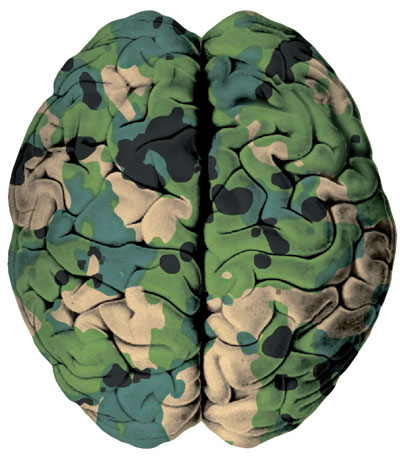The Royal Society has just released a fascinating report entitled “Neuroscience, Conflict and Security” that examines the increasing role that neuroscientific research is playing in the military today (thanks to Nick for drawing my attention to it). Indeed, as was reported by Wired’s Danger Room a couple of years ago, the US Air Force has been soliciting research proposals for “innovative science and technology projects to support advanced bioscience research” that include “bio-based methods and techniques to sustain and optimize airmen’s cognitive performance”, “identification of individuals who are resistant to the effects of various stressors and countermeasures on cognitive performance” and “methods to degrade enemy performance and artificially overwhelm enemy cognitive capabilities.” Likewise, DARPA (the Defense Advanced Research Projects Agency that gave us the Internet) has long shown significant interest in the potential military applications of neuroscience.
As the Royal Society report puts it, military neuroscience can be seen to have “two main goals: performance enhancement, i.e. improving the efficiency of one’s own forces, and performance degradation, i.e. diminishing the performance of one’s enemy” (p.1). It is with reference to these two goals that I will attempt in this post to make some sense of the wider context and implications of neuroscience’s entanglement with contemporary martial practices.
